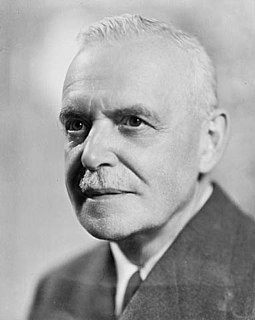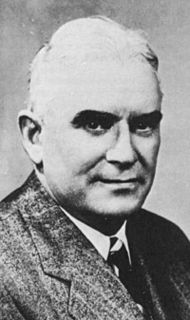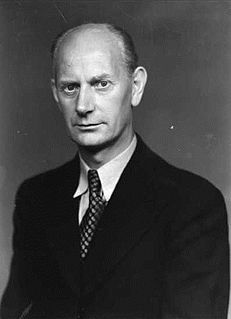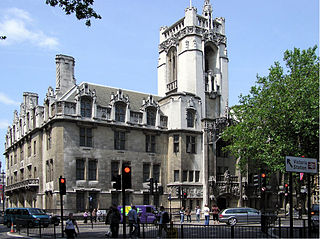
The Metropolitan Borough of Greenwich was a Metropolitan borough in the County of London between 1900 and 1965. Within the area of the borough were the Royal Naval College, the Royal Observatory and Greenwich Park. It bordered the boroughs of Woolwich, Deptford, Lewisham. It was amalgamated with the Metropolitan Borough of Woolwich to form the then London Borough of Greenwich, now the Royal Borough of Greenwich.

The 1955 United Kingdom general election was held on 26 May 1955, four years after the previous general election. It resulted in a substantially increased majority of 60 for the Conservative government under new leader and prime minister Sir Anthony Eden against the Labour Party, then in its twentieth year of leadership by Clement Attlee.
The British Columbia Conservative Party, formerly the British Columbia Progressive Conservative Party, is a provincial political party in British Columbia, Canada. From the early 1900s until the 1950s, the Conservatives were, along with the British Columbia Liberal Party, one of the two major parties in the province. Since the 1950s, the party has gradually declined in prominence, last winning a seat in a 1978 by-election. The Conservatives enjoyed a brief resurgence after Liberal MLA John van Dongen joined the party in 2012, and won nearly 5% of the vote in the 2013 provincial election. The party plays a minor role in provincial politics today.

The Canadian federal election of 1953 was held on August 10 to elect members of the House of Commons of Canada of the 22nd Parliament of Canada. Prime Minister Louis St. Laurent led his Liberal Party of Canada to its fifth consecutive majority government, although the party lost seats to the other parties.

The British Columbia general election of 1953 was the 24th general election in the Province of British Columbia, Canada. It was held to elect members of the Legislative Assembly of British Columbia. The election was called on April 10, 1953, and held on June 9, 1953. The new legislature met for the first time on September 15, 1953.

The 1952 British Columbia general election was the 23rd general election in the Province of British Columbia, Canada. It was held to elect members of the Legislative Assembly of British Columbia, alongside a plebiscite on daylight saving time and liquor. The election was called on April 10, 1952, and held on June 12, 1952. The new legislature met for the first time on February 3, 1953. It was the first general election to use a preferential ballot, a short-lived phenomenon in BC. The presence of multi-member districts such as Victoria City with 3 MLAs in conjunction with the Alternative voting system called for an innovation where the district's slate of candidates was split into three "ballots," each with one candidate from each party.

Parliamentary elections were held in Norway on 12 October 1953. The result was a victory for the Labour Party, which won 77 of the 150 seats in the Storting.

Middlesex County Council was the principal local government body in the administrative county of Middlesex from 1889 to 1965.
A by-election was held for the British House of Commons constituency of Brighouse and Spenborough on 17 March 1960. The seat became vacant following the death on 23 November 1959 of the Labour Party Member of Parliament Lewis John Edwards, who had held the seat since a by-election in 1950, but whose majority had been cut to only 47 votes at the 1959 general election.
The Birmingham Edgbaston by-election, 1940 was a parliamentary by-election held for the British House of Commons constituency of Birmingham Edgbaston on 18 December 1940. The seat had become vacant when Neville Chamberlain, the constituency's Conservative Party Member of Parliament had died from stomach cancer on 9 November. Chamberlain had been Prime Minister until May 1940, and had held the Edgbaston seat since the 1929 general election.
Middlesex County Council was the principal local government body in the administrative county of Middlesex, England from 1889 to 1965.
The Ormskirk by-election of 12 November 1953 was held after the elevation to the Peerage of Conservative MP Arthur Salter.
The Leeds municipal elections were held on Thursday 7 May 1953, with one third of the council as well as a vacancy in Richmond Hill to be elected.

Presidential elections were held in Colombia on 4 May 1958. They were the first presidential elections since 1949, following a military coup against President Laureano Gómez in 1953. Following the coup, the two main parties came to an agreement on holding office for alternating periods of four years. The agreement, known as the National Front, was approved in a 1957 referendum.
The Canterbury by-election was held on 12 February 1953. It was held due to the resignation of the incumbent Conservative MP, Baker White. The by-election was won by the Conservative candidate Leslie Thomas.
The 1953 Isle of Thanet by-election was held on 12 March 1953. It was held due to the resignation of the incumbent Conservative MP, Hon. Edward Carson. It was retained by the Conservative candidate, William Rees-Davies.
The 1953 Sunderland South by-election was held on 13 May 1953. It was held due to the death of the Labour MP Richard Ewart. It was gained by the Conservative candidate Paul Williams who had unsuccessfully contested the seat in the 1951 general election. It was the first time since 1924 that an incumbent government had gained a seat from the opposition in a by-election. The gain was held at the 1955 general election.
The Crosby by-election was held on 12 November 1953. It was held due to the incumbent Conservative MP, Malcolm Bullock resigning his seat. The by-election was won by the Conservative candidate Graham Page.
The 1953 Holborn and St Pancras South by-election was held on 19 November 1953. It was held due to the death of the incumbent Labour MP, Santo Jeger. The seat was retained by his wife, Lena Jeger, the Labour candidate and a Guardian journalist and councillor on St Pancras Borough Council and the London County Council.









